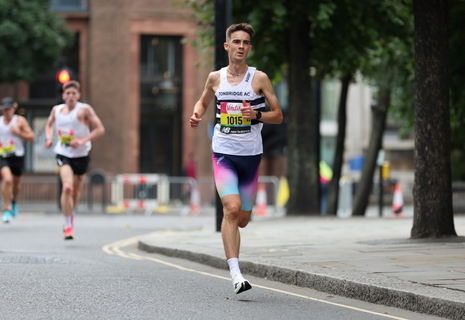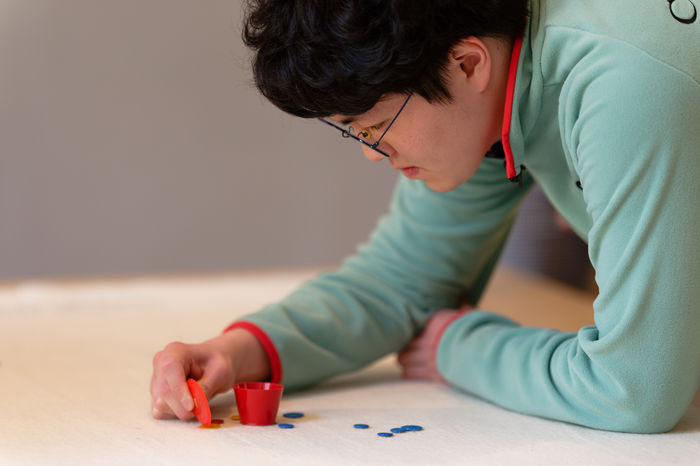Parrots and peanut butter – what really makes the elite athlete tick?
Alfie Penfold tracks his interest in sports psychology, and speaks to an elite runner to try and find their secret sauce

For as long as I can remember, I have had an obsession with sportspeople. Having myself never been able to last more than four gym visits in a row without slinking back to the sofa and a packet of Hobnobs, it seems absurd to me that there are people who train with such focus and discipline for a sporting event years in the future. Ultimately, one word of praise emerges to sum these people up: consistency. The consistency needed to trot out that last lap of the track on a freezing winter’s day, or slug that last barbell to its final resting place at the top of the squat rack when every one of your muscles is burning. I regularly bury myself in the latest sports psychology book to hit the shelves, trying to gain a deeper insight into what sets the high achievers of this world apart from the rest of us. In my opinion, Matthew Syed’s Bounce is the crème de la crème of the genre.
Every elite athlete has an intrinsic faith in the quality of their respective systems in getting them to where they want to go. You’d have to, wouldn’t you? To keep showing up, day after day, with unshakeable confidence that what you are going to do that day will make you a little bit faster, or a little bit stronger. Sure, there will inevitably be tinkering around the edges; while at Real Madrid, Cristiano Ronaldo began to wear weighted ankle braces in every training session, so that during his matches the ball feels as light as a feather. But the core faith remains the same. There has to be an element of the absurd to it — as Einstein said, “Insanity is doing the same thing, over and over again, and expecting different results.” But weirdly, in the sporting universe, this is completely false. Michael Phelps certainly got different results after swimming the same lengths of a pool again and again for the equivalent distance of a trip to the Moon. What seems like an arduous and unfulfilling chore to most is simply, for the athlete, the necessary grunt work of achievement.
To try and get into the mind of the athlete, I spoke to elite runner Cole Gibbens. Cole plies his trade for Tonbridge Athletic Club, specialising in the 5k, 10k and half-marathon distances. He also boasts an impressive social media following, regularly filming his workouts and races for viewers on YouTube. Cole offers his viewers a glimpse into the training and nutrition that goes into athletic high performance. He is very candid about the so-called “hard skills” needed to compete at the top level, as well as being a fantastic advocate for mental health awareness. When I spoke to him, I wanted to get under his skin a bit more and find out the underlying psychology that motivates him.
Initially I thought I’d called Cole while he was waiting beside a steam train, but he swiftly informed me that the high-pitched hooting in the background was coming from his pet parrot, Charlie. Mystery solved. When asked whether he had any pre-race rituals, simplicity was the name of the game: he always has a peanut butter and jam sandwich before a race, fuelling up on one last sugar hit before he takes off at the sound of the starting gun. He also tightens his watch strap while waiting on the start line; a habitual “grounding exercise” that Syed has noted, something replicated across multiple disciplines. Think of the orchestra conductor tapping his baton on the guard rail surrounding him, or the cricket player tossing the ball three times into the air before she runs up to bowl. These repeated actions can drop you directly into the right headspace – into the arena of competition. They are only done there and then, so the brain knows that it’s go time.
While talking to Cole, I also wanted to investigate the other aspect of sport: helping others. Very often it’s forgotten that the vast amount of grassroots sport is cooperative, not competitive, in nature. Only at the very top of the professional level do clubs regard each other with acute rivalry. Back home in Norfolk I volunteer in media for Wroxham Football Club, whose men’s first team play in the eighth tier of English football. In the league, each and every club looks out for the other. The managers and chairmen will often be friends on a first-name basis, and the players share a hot meal together at the end of every match. Even in the much-vaunted English football pyramid, with the whispering sirens of the Premier League at the top, community and connection is put at the heart of the sporting experience.
Cole said that he loved the social aspect of running, and that it was one of the best things he did for his mental health. Perhaps, ultimately, this is the thing that gets lost in the study of sporting excellence. For all of the Malcolm Gladwell deep-dives and Alex Ferguson biographies that pepper our shelves, it is the sense of togetherness so rooted in sport that keeps people coming back for more. For many, the only way of bonding with a relative is by watching football. Ange Postecoglou has remarked that the only time he saw his father happy and relaxed was when he was watching South Melbourne play on a Saturday afternoon. That boosted his love for his Dad, and in turn made him fall in love with the game. You can talk about discipline and fastidiousness until the cows come home, but there is something even more powerful that propels the pursuit of excellence, and that is love. Long may it continue.
Finally, a daft question. How much would Cole sell his legs for? They are, after all, very fast legs. His answer: “£20 and a packet of Walkers.” Nice one, Cole. See what you did there.
 News / Uni members slam ‘totalitarian’ recommendation to stop vet course 15 January 2026
News / Uni members slam ‘totalitarian’ recommendation to stop vet course 15 January 2026 Science / Why smart students keep failing to quit smoking15 January 2026
Science / Why smart students keep failing to quit smoking15 January 2026 News / Cambridge bus strikes continue into new year16 January 2026
News / Cambridge bus strikes continue into new year16 January 2026 Interviews / The Cambridge Cupid: what’s the secret to a great date?14 January 2026
Interviews / The Cambridge Cupid: what’s the secret to a great date?14 January 2026 Comment / Will the town and gown divide ever truly be resolved?12 January 2026
Comment / Will the town and gown divide ever truly be resolved?12 January 2026









